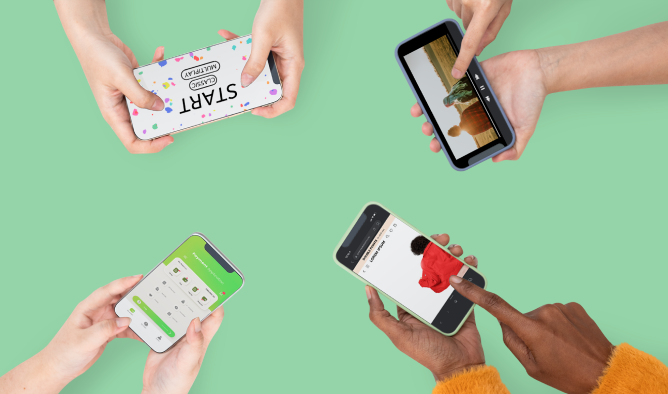Role Play
Home » Role Play
Role play is a form of experiential learning that lets participants grasp new concepts and practice emotional skills by playing assigned roles in a dedicated scenario provided by the instructor. Indeed, learners employ these social-emotional skills (frequently referred to as SEL) by taking on the perspective of others and build stronger memories of the learning process by living through a situation first-hand.
Through this instructional method, anyone can practice interactions that would happen in their real workplaces in a low-stakes environment with their colleagues first.
So, spoiler alert: Role playing is actually serious business.
A standing ovation
A note of warning: in the learning world, Role Playing doesn’t refer to games like Dungeon & Dragons, although it is based on the same premises. As mentioned before, instructional Role Playing is a kind of experiential learning, or learning through experiencing something: that is, reflecting on the topic, and adapting one’s behavior as a result.
When participants act out roles in a dedicated scenario, for example a sales representative pitching a product to a potential client, they actively experience the situation and engage in making decisions. They may have to creatively adapt to unexpected plot twists and resiliently make on-the-spot adjustments to their strategy.
Role playing: Three areas of benefits
- Cognitive: A brain actively involved in problem-solving a situation is a brain that develops deeper neural connections on the subject matter.
- Affective: Taking on the role of someone else places one in another person’s perspective and boosts social-emotional soft skills like self and social awareness.
- Behavioral: Through the Role Playing process, people test a strategy out, reflect on how it works, and refine it to get to the best possible outcome. They thus change their initial approach and become equipped to use best practices out in the “real world.”
The backstage
Learning through experience is an active, hands-on way to build knowledge and skills that are harder, and less “sticky” to learn through listening, watching, or reading information alone. It requires some preparation, so here are a few key tips for putting Role Play into action in any learning setting.
- Select the scenario: The scenario for the Role Play is best if it is realistic, relevant to what the learners need to do on the job, and rigorous. For example:
- a customer service agent helping an angry customer;
- a sales representative testing out selling techniques with a skeptical prospect;
- a recruiter conducting an interview with a nervous job seeker;
- a student in the role of a lost tourist in a foreign language course.
- Prepare learners for Role Play: Since not everyone may be familiar with this, set expectations for what learners should do to prepare, how much time they have for the Role Play performance, how they will be evaluated, and of course, assign roles. There are no right or wrong rules for this!
- Do the Role Play: It’s showtime! The presenters take turns acting out their scenes, and the audience observes. The instructor (or participants assigned these jobs) can be a time-keeper, a note-taker, and a moderator for a respectful and attentive audience.
- Debrief as a group: Let the entire situation play out and then discuss together with the performers and audience at the end. Could the situation have played out differently? This is the opportunity for reflection and feedback. Remember to acknowledge what went well too – a little positive reinforcement goes a long way for building confidence and motivation to try again next time.
- Incorporate the Role Play into the learning path: If the Role Play is a part of a larger topic of study, now is the time to summarize and link it back to the learning path.
Pro tip: If you want to turn up the heat… Raise the stakes by throwing in an unexpected situation or escalation into an ongoing Role Play to provide a safe space for practicing coping with added stress, if you feel it is safe to do so for your learners. For example, instruct each participant to respond for the rest of the Role Play from a specific point of view, such as “the cautious one” who predicts negative outcomes or “the creative one” who adds more and more ideas to the mix (from de Bono’s Six Thinking Hats). This can train the creativity muscle and test your participants’ resilience in adjusting to on-the-spot changes.
On stage with WeSchool
Interested in hosting a Role Play session as part of your training session or lesson? WeSchool has got you covered. Here’s how:
-
 Create a lesson with all the information needed for the Role Play (including the characters involved, what learners have to do, and what they need to know). Features used: Wall + Lessons
Create a lesson with all the information needed for the Role Play (including the characters involved, what learners have to do, and what they need to know). Features used: Wall + Lessons -
 Schedule a meeting using the calendar and live features and assign learners roles during the Live. Features used: Calendar + Live + Board (if needed)
Schedule a meeting using the calendar and live features and assign learners roles during the Live. Features used: Calendar + Live + Board (if needed) -
 Divided into the breakout rooms, learners work together on the assignment during the Live meeting. Disclaimer: Learners can work together outside the Live, if they need more time to prepare for the Role Play. They can also work independently, depending on the role they need to play. Features used: Live + Board (if needed), and Lessons + Wall (for independent prep time)
Divided into the breakout rooms, learners work together on the assignment during the Live meeting. Disclaimer: Learners can work together outside the Live, if they need more time to prepare for the Role Play. They can also work independently, depending on the role they need to play. Features used: Live + Board (if needed), and Lessons + Wall (for independent prep time) -
 Schedule a debrief session to reflect and wrap up the experience. Features used: Calendar + Live
Schedule a debrief session to reflect and wrap up the experience. Features used: Calendar + Live
As the curtains fall
Building the mindset and buy-in for Role Play is the first, unwritten rule of Role Play. Not everyone may initially like the idea of Role Play or take it seriously. Modeling and providing real-life examples of situations that went badly could help set the context for using Role Play for its noble purpose – learning from mistakes safely.
Jump right back in
Ready to engage your learners through Role Play?








